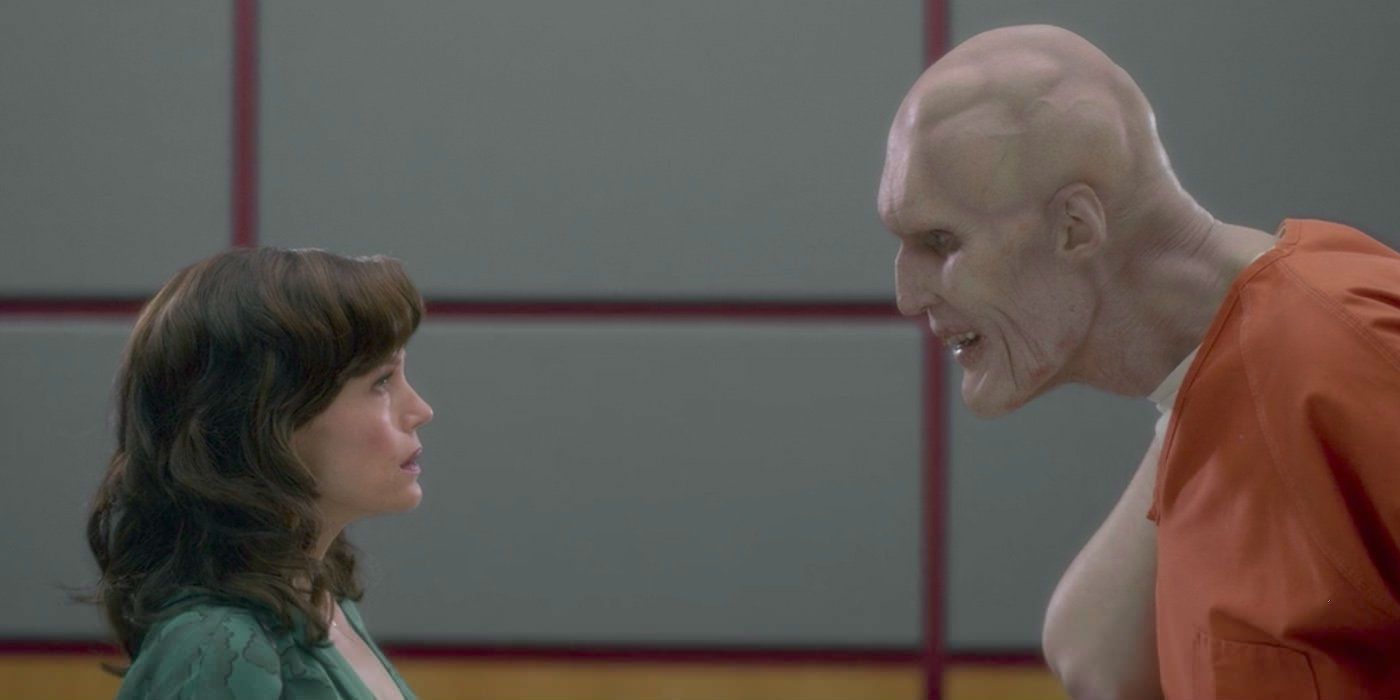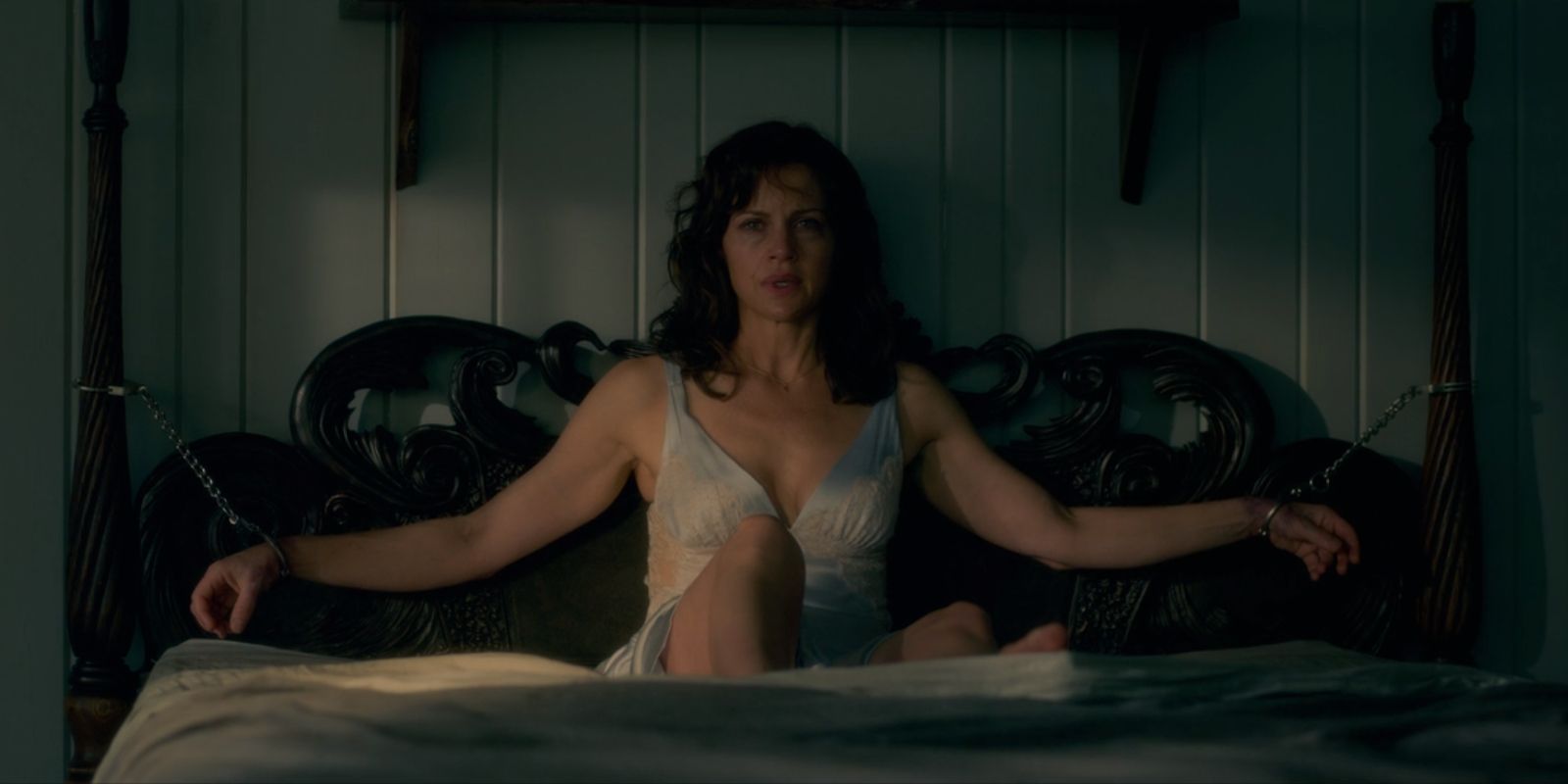Netflix's Stephen King adaptation Gerald's Game is a film deserving of its acclaim, but suffers due to an ending that feels tacked on and contrived. As one of the most read authors in history, Stephen King has seen dozens and dozens of his stories be adapted for the screen, sometimes as movies and sometimes for TV. In Gerald's Game's case, the 1992 book became a movie made for TV, in this case a Netflix original premiering in September 2017.
Gerald's Game was a film project that drew much skepticism from King's constant readers, as the book, set almost entirely within one room and with very few actual characters, was long thought to be "unfilmable." Much of the story is also internal, told through the increasingly fractured psyche of protagonist Jesse Burlingame. Thankfully, Netflix's movie had a secret weapon in director Mike Flanagan, who's rapidly become one of horror's most consistently reliable filmmakers.
As directed by Flanagan, Gerald's Game earned rave reviews from both critics and King fans, and made many top ten lists for best horror film of 2017. One could argue it's also in the top tier of King adaptations, period. The only real problem Gerald's Game suffers from is an ending epilogue that drags on far too long, and concludes on a moment that seems like it was lifted from a different story. Oddly enough though, this conclusion is very faithful to the book.
Gerald's Game Is a Great Stephen King Movie Hurt by a Bad Ending
The basic premise of Gerald's Game is pretty simple. A married couple, Gerald and Jessie Burlingame, head out to a remote lakehouse to try and rekindle the flame of their relationship. Gerald handcuffs Jessie to the top of the bed, and proceeds to try some aggressive sexual roleplay that makes Jessie uncomfortable, and she demands he stop. This leads to an argument, following which Gerald has a heart attack and dies. Jessie is then trapped in a situation in which she can't move, much less escape, with no food and water available, and animals from the surrounding forest threatening to make her a meal.
After a harrowing mental and physical journey, Jessie manages to free herself, but not before inflicting a horrifying injury to her hand. During her ordeal, Jessie encountered a frightening figure she dubbed "the moonlight man." Six months after her survival, Gerald's Game's epilogue reveals that this man was in fact a real life serial killer named Raymond Joubert, and she's lucky he didn't make her a victim. Jesse confronts the towering man at his sentencing, insulting him, and seemingly freeing herself from fear. She then steps out into a sunny day.
Unfortunately, as many fans began pointing out immediately following Gerald's Game's release, everything after Jessie's escape from the lakehouse feels entirely superfluous to the story. Moonlight Man being a real person, and Jessie confronting him in court feels like the ending to a different movie, and while one can see what King was going for with his message of Jessie overcoming her personal demons, these scenes feel disconnected from the rest of the plot, and serve to cause ending fatigue in the viewer. As mentioned, this ending is mostly faithful to King's book, which just serves as another example of King's famous problem crafting satisfying endings. While a bad ending certainly doesn't ruin an otherwise excellent film, it does prevent Gerald's Game from achieving true greatness.


